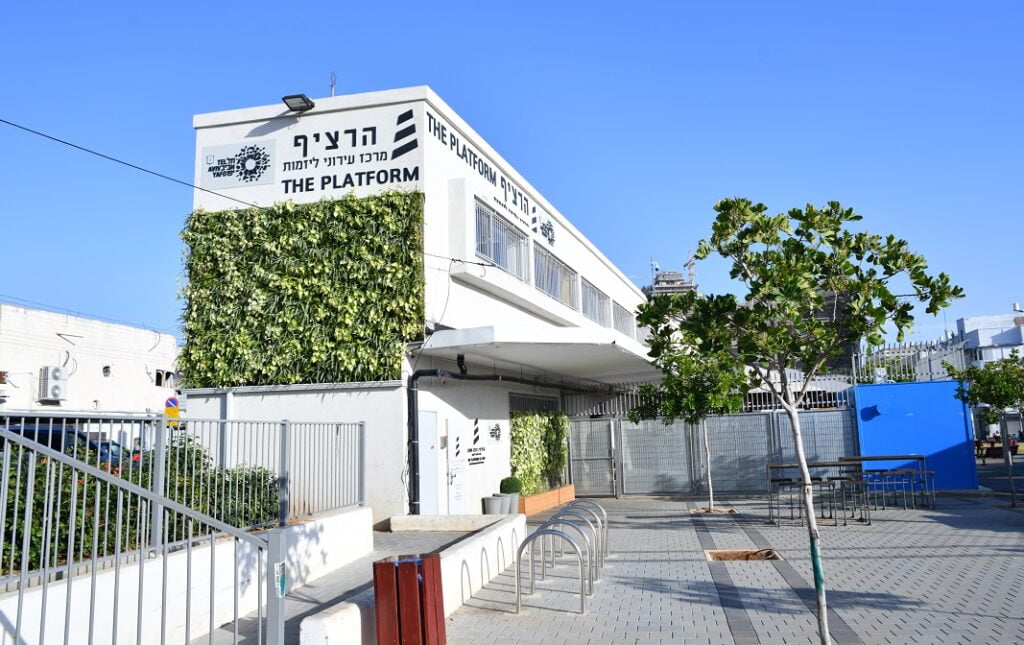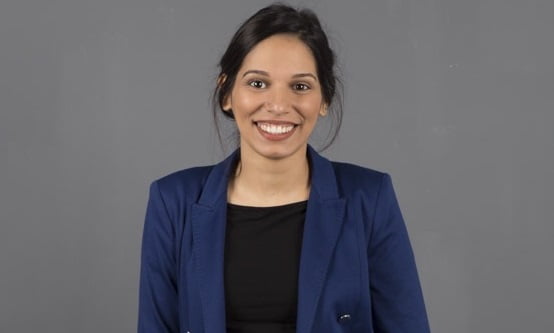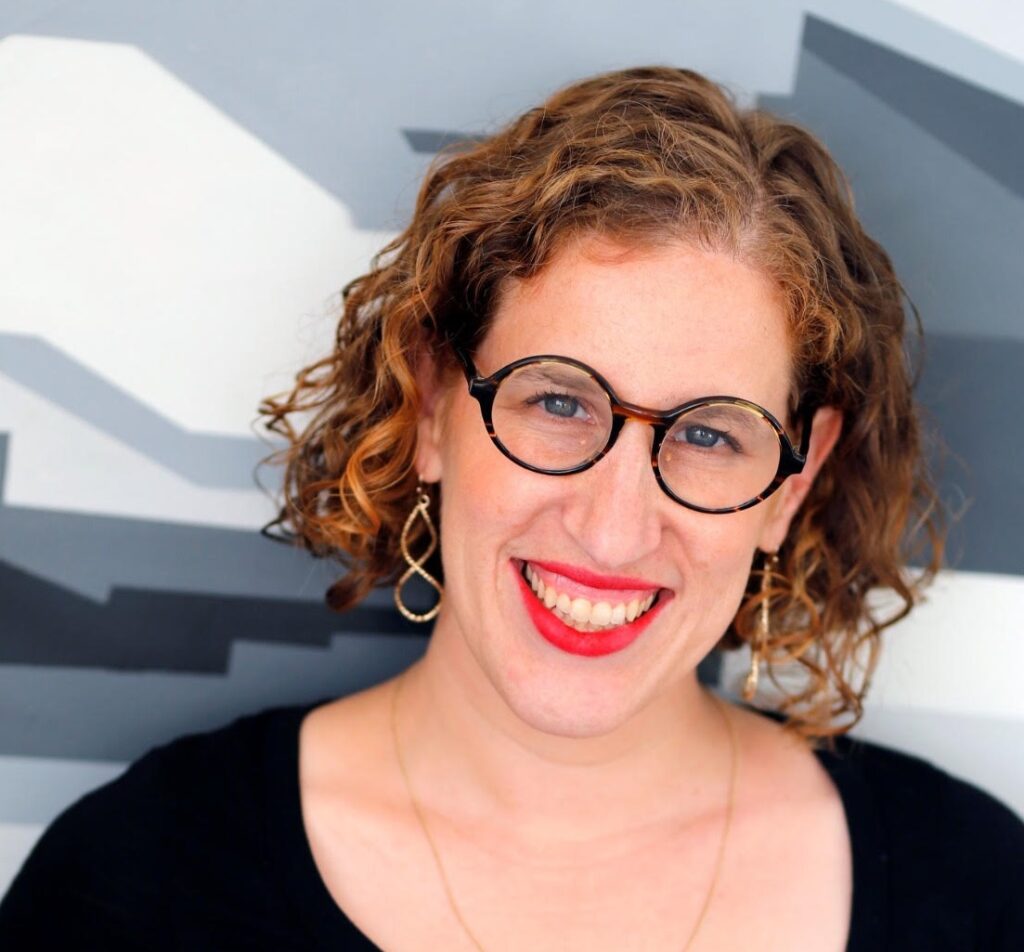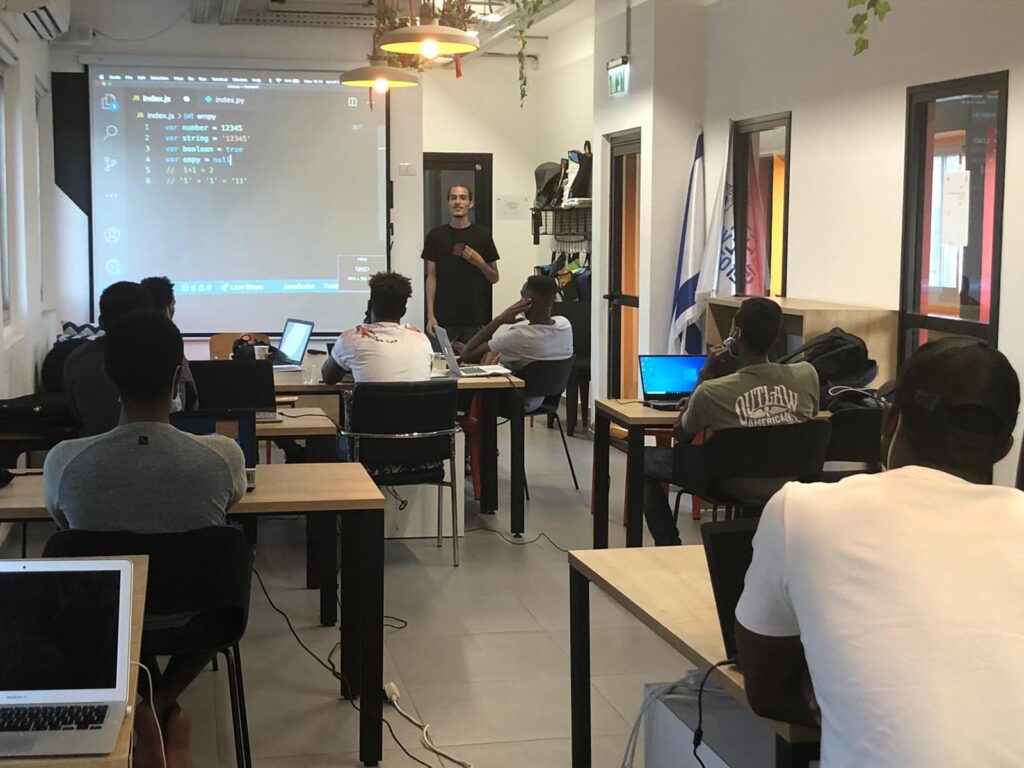A coding and entrepreneurship course for African asylum seekers and refugees is set to launch in Tel Aviv over the next few weeks as part of a new initiative to advance employment opportunities for one of the city’s most vulnerable population groups.
“We are enabling a small group of people to acquire basic skills, to do things that can help them get more experience and develop a portfolio that in the future can help them network, which is one of the most important things that can help them be incorporated into [high-tech] companies,” says Khouloud Ayuti, co-CEO of PresenTense, one of the organizers of the new initiative. PresenTense is a non-profit organization dedicated to promoting an inclusive society in which diverse communities are equally represented in the Israeli entrepreneurial ecosystem.
The coding course is the next step after a pilot program, held in November, at The Platform, a municipal entrepreneurship center located in Tel Aviv’s Neve Shaanan neighborhood, and PresenTense, funded by Citi Foundation.
SEE ALSO: New Initiative Brings Coding Bootcamp To African Refugees In Tel Aviv
The African Refugee Development Center (ARDC), a non-profit founded in 2004 by asylum seekers and Israeli citizens to empower African refugees, asylum seekers and migrant workers, worked in closer partnership with the Tel Aviv-Yafo Municipality’s The Platform and PresenTense.

The ARDC runs ongoing educational programs, vocational training, pre-academic and academic studies to help asylum seekers intent on furthering their skills.
This latest ten-week pilot course introduced 10 participants, selected from a pool of 50 applicants, to Python programming and other basic coding skills. The participants, hailing from Eritrea, Sudan and Ethiopia, have been in Israel for over 10 years and most of them had university degrees from their home countries.
The pilot cohort included nine men and one woman, with a median age of mid-30s, says Shana Krakowski, director of The Platform.
“We are incredibly proud to have hosted this course here at The Platform in Neve Shaanan, opening doors of opportunities to marginalized communities. Tel Aviv-Yafo Municipality believes that technology has the power to be a great equalizer and that diversity drives innovation. The dedication of the students in the course exceeded our expectations, with students never missing a class and improving their skills in such a short time. We hope this will be the first of many,” says Krakowski.
Diversity in innovation is more than just a buzzword or trend. Studies continually show that companies with a diverse workforce – whether it be by race, socio economic status, gender or age – enjoy long-term sustainability.

“We need diversity and inclusion now more than ever. With the COVID-19 pandemic still raging, industries are in desperate need of new ideas, new leaders and new opportunities. Innovators are awaiting their time to shine, especially at this paradoxical time of rapid change while the world is at a standstill. The values of social justice and a shared society should underlie the activities of all start-ups, helping them reach out to broader audiences and expand their social impact,” write Ariella Rosen and Ayuti, co-CEOs of PresenTense, in an op-ed in The Jerusalem Post.
“Our goal at PresenTense is to identify existing gaps and address them by making the ‘Startup Nation’ accessible. There are many socially-marginalized communities that don’t take part in the thriving tech and entrepreneurship ecosystem. We are grateful to have had this opportunity to bring the employment possibilities of the 21st century to the asylum seekers and migrant workers in Tel Aviv-Yafo and look forward to our continued joint work,” says Ayuti.
In the pilot program, each participant was paired with a mentor that offered one-on-one guidance and personal assistance to support their high-tech studies. Ismail Kharoub, a self-taught coder and successful entrepreneur from Jaffa, taught the pilot course in Arabic, Hebrew and English.
Some students voiced hope that the course will represent their first step toward a high-tech career, others want to start their own businesses, and some wanted to use what they learned to teach in their respective communities.
Sign up for our free weekly newsletter
Subscribe“My hope for the future is to teach young people from my community and share with them what I know and have experienced. I want to give whatever little I have to marginalized communities – I can understand their difficulties. The journey of life is short, so let’s make the world better together,” says Fisseha Tsegai Tesfamichael, an asylum seeker from Eritrea and graduate of the course.
And while the pilot program was a success — all 10 students completed the course and expressed interest in pursuing advanced-level coding programs in future — the organizers do not believe the new coders will find immediate employment in the startup arena.
“There’s still a long way to go,” Ayuti tells NoCamels, referring to seeing true diversity in Israeli innovation. Ayuti says that no specific companies are sponsors of the current “Introduction to Coding” course, which is part of the “Made in Tel Aviv” program by PresenTense and the city of Tel Aviv.

“But these kinds of programs really help… only through networking can we begin to expose these big companies to this [population],” she tells NoCamels. “Just yesterday, I saw a message in a group of someone looking for 8200 alumni [hundreds of high-tech startups have their origins in the Unit 8200 division of the Israeli Defense Forces – vsp], which is great. But it just goes to show how the companies are still looking for people who look like them, for people who act like them, for people who did the same or have the same education, the same backgrounds. And that’s what’s stopping diversity right now. We need to be able to bring diverse populations to the forefront.”
In Israel, the network – and the close-knit ecosystem – plays a critical role in local innovation.
“The network is super important because friends bring friends to work. And we all know that,” says Krakowski. “So, there is the notion of friends bringing friends into the industry. And there’s also the breaking of the paradigms. Once you break people’s paradigm stigmas …there’s more talent out there. There’s still a really long way to go and it requires putting a lot of effort to bridge gaps — bridge educational gaps, financial gaps, and giving people the opportunity to study.”
Krakowski is under no illusion that one – or two, or even three – coding courses will launch a new career for the people who need it most.
“That’s why programs like these are so important. We have to make it affordable, accessible, and then take people the whole way. It cannot be just an intro to coding, we have to take them to the next step along the way,” she says.
SEE ALSO: Israeli Tech Industry Grows But Employee Shortage Climbs To 18,500 – Report
Asked what the best-case scenario looks like for graduates of these courses, Ayuti says: “I think the dream for me is that about 60 percent of the asylum seekers will work at a global company, as programmers.”
Krakowski says she agrees with that outlook and adds that it would be ideal to see “programs like these multiply so that we reach more people of all different diverse backgrounds, not just in this population. More programs like this that grow and expand and become a place that companies look to seek to find talent.”
Viva Sarah Press is a journalist and speaker. She writes and talks about the creativity and innovation taking place in Israel and beyond. www.vivaspress.com
Related posts

Editors’ & Readers’ Choice: 10 Favorite NoCamels Articles

Forward Facing: What Does The Future Hold For Israeli High-Tech?

Impact Innovation: Israeli Startups That Could Shape Our Future




Facebook comments